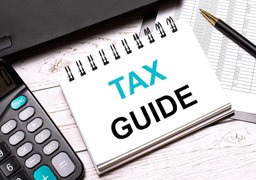# penalties
12 posts in `penalties` tag

Understanding the Importance of Timely TDS Tax Return Filing
Timely filing of TDS returns is crucial for avoiding hefty penalties and ensuring compliance with India's tax laws.

Understanding the Nuances of Section 206C(1H)
This blog post provides a detailed explanation of Section 206C(1H) of the Income Tax Act. It covers the key points of the provision, including its applicability, types of payments covered, withholding rates, TDS requirements, and the importance of compliance. The blog aims to help individuals and businesses understand their obligations under this section and avoid penalties.

Understanding GSTR 11: An All-Inclusive Manual for Compliance and Filing
This blog offers a thorough explanation of GSTR 11 and covers its regulations, qualifying requirements, return filing procedure, and non-compliance penalties. For embassies, UN agencies, and other notified parties who must file GSTR 11 and adhere to Indian GST legislation, it is an extensive resource.

A Complete Guide to Understanding Income Tax Notice Under Section 142(1)
This blog post provides a comprehensive guide to Income Tax Notice Under Section 142(1), including its purpose, when it is issued, and how to respond to it. It also covers the consequences of non-compliance and provides tips on how to safeguard yourself from penalties

Understanding Scrutiny Assessment under Income Tax Section 143(3) - A Comprehensive Guide
This blog post provides a comprehensive guide to Scrutiny Assessment under Income Tax Section 143(3), including its purpose, time limit, notice, and hearing process. It helps taxpayers understand the importance of complying with the income tax laws and avoiding penalties.

Correcting Mistakes: A Comprehensive Guide to Revised ITR Filing
Filing an Income Tax Return (ITR) can be a daunting task, and mistakes can occur. A revised ITR is a solution to rectify errors or omissions in the original return. This comprehensive guide covers revised ITR filing deadlines, common errors, procedures, and tips to help you navigate the process with ease.

Understanding Section 122(1) of the GST Act: A Complete Guide
This blog provides a detailed analysis of Section 122(1) of the GST Act, outlining the various offenses and penalties related to GST in India. It covers supply-related offenses, tax evasion, and non-compliance, as well as registration and documentation-related offenses.

Income Tax Department's Cautionary Notice: A Comprehensive Guide to Correct and Accurate ITR Filing
The Income Tax Department has issued a cautionary notice to taxpayers regarding the importance of correct and accurate ITR filing. This blog post explains the significance of accurate tax returns, the consequences of incorrect filing, and provides tips on how to ensure accurate ITR filing. Read on to understand the notice and its implications for taxpayers.

Understanding Sections 234A and 234B of the Income Tax Act, 1961
This blog provides a comprehensive overview of Sections 234A and 234B of the Income Tax Act, 1961. It explains the interest levied for defaults in filing income tax returns and advance tax payments, their implications, and key differences. The blog also offers practical tips for taxpayers to ensure compliance and avoid penalties.

Understanding Penalties under Sections 271A and 271 of the Income Tax Act
This blog provides a comprehensive overview of Sections 271A and 271 of the Income Tax Act, highlighting their key differences, penalties, and implications for taxpayers. It emphasizes the importance of maintaining proper financial records and complying with all tax-related legal requirements to avoid hefty penalties.

Sections 269SS and 269T of the Income Tax Act
The Income Tax Act has provisions called Sections 269SS and 269T that limit cash transactions for loans and deposits over Rs. 20,000 in an attempt to prevent tax evasion and encourage transparency. Such amounts cannot be accepted in cash according to Section 269SS, and cash repayment is limited according to Section 269T. Penalties for noncompliance may equal the cost of the transaction. This blog offers a thorough explanation of each of these areas, as well as helpful advice on how to comply.

Responding to a Notice Under Section 133(6) of the Income Tax Act
This blog provides comprehensive guidance on how taxpayers can effectively respond to notices issued under Section 133(6) of the Income Tax Act. It covers the scenarios in which these notices are issued, the type of information that may be requested, and best practices for ensuring compliance to avoid penalties and legal consequences.
